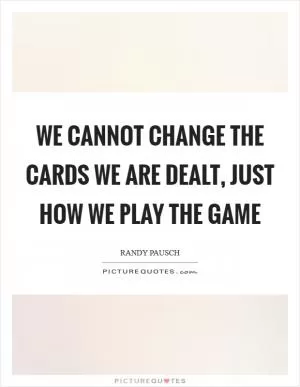When you're screwing up and nobody says anything to you anymore, that means they've given up on you

When you're screwing up and nobody says anything to you anymore, that means they've given up on you
Randy Pausch, a renowned computer science professor at Carnegie Mellon University, became widely known for his inspirational "Last Lecture" after being diagnosed with terminal cancer. Throughout his lecture and subsequent book, Pausch shared valuable life lessons and insights on achieving one's dreams and making the most of every moment.One of the key messages that Pausch emphasized was the importance of feedback and constructive criticism. He believed that when people stop providing feedback or pointing out your mistakes, it is a sign that they have given up on you. Pausch understood that feedback, even when it is critical, is essential for personal growth and improvement. Without feedback, individuals may continue to make the same mistakes and fail to reach their full potential.
In the context of Pausch's own life, he experienced the power of feedback firsthand. As a professor, he was known for his innovative teaching methods and dedication to his students. Pausch encouraged his students to take risks, embrace failure, and learn from their mistakes. He believed that feedback was a crucial component of the learning process and that without it, individuals would struggle to grow and develop.
Pausch's belief in the importance of feedback was also evident in his own battle with cancer. Throughout his illness, he remained open to feedback from his doctors, family, and friends. He sought out different treatment options, listened to advice from medical professionals, and made decisions based on the feedback he received. Pausch's willingness to accept feedback and make changes based on it allowed him to live his final months with grace, dignity, and purpose.












 Friendship Quotes
Friendship Quotes Love Quotes
Love Quotes Life Quotes
Life Quotes Funny Quotes
Funny Quotes Motivational Quotes
Motivational Quotes Inspirational Quotes
Inspirational Quotes